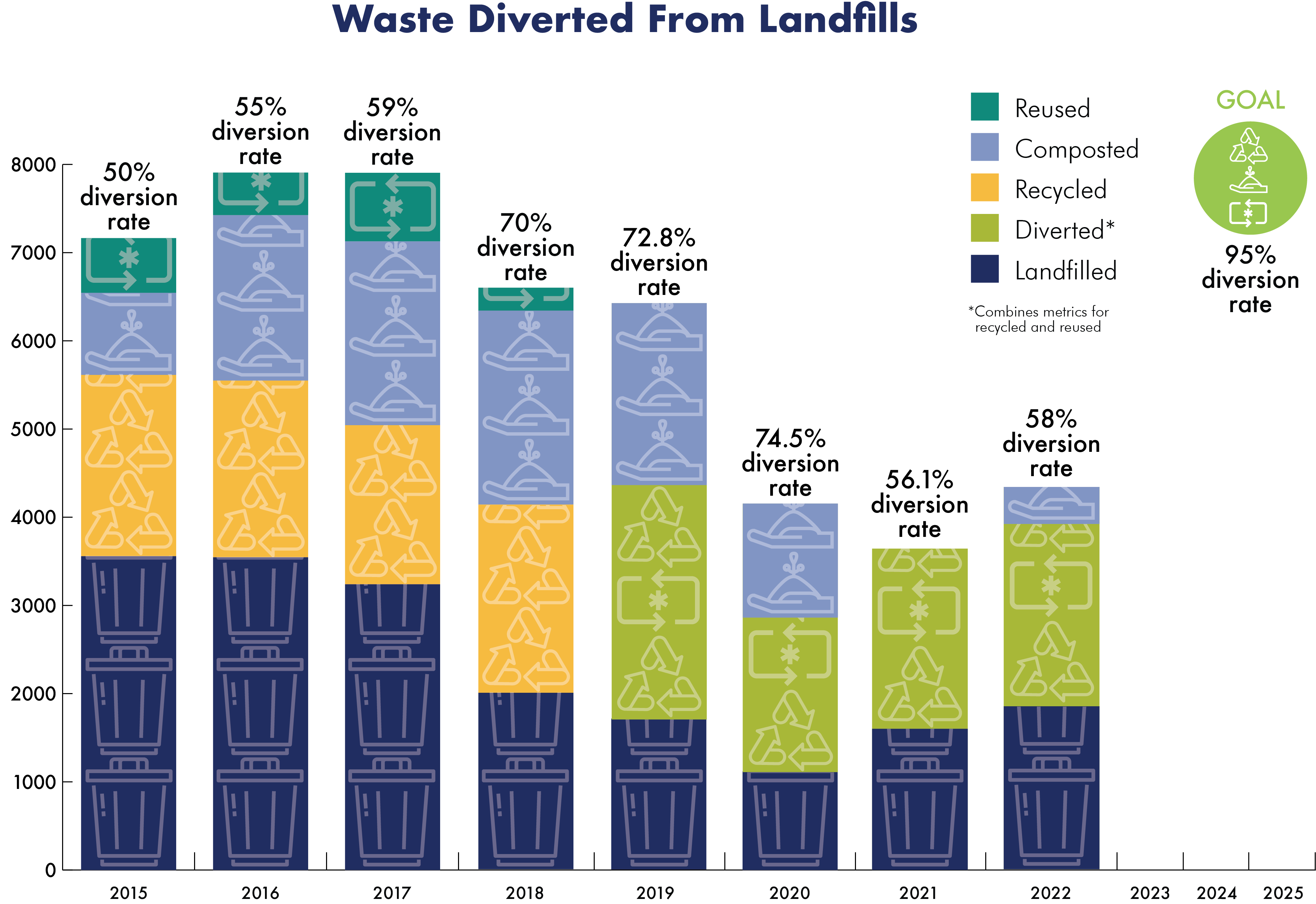So Far
- The Emory Recycles department began recycling white paper in 1990, and since that time, all Emory University academic buildings, residence halls, labs, clinics and offices now have a source-separated recycling and composting program.
- Emory Healthcare reduces and recycles waste generated in clinics by washing and reusing gowns and linens, reusing sharps containers and donating equipment and materials for use in other countries.
- Emory Recycles accepts plastics, metal cans, glass, mixed paper, and cardboard at the Recycling Drop Off site located on Peavine Creek Drive open 24 hours a day, seven days a week.
- Emory nurtures partnerships with area nonprofits re:loom and MedShare to recycle and reuse old uniforms and medical supplies.
- The student group, Emory Food Chain, also recovers much of the excess food and repurposes it into meals for area food pantries and shelters. This food can then feed our neighbors and be diverted of landfills.
 Click image for a larger view
Click image for a larger view
Today
- In January 2018, Emory University implemented a Waste Policy to make landfill diversion easy, accessible and educational for all who live, work and learn at Emory.
- Emory Recycles, the Emory Environmental Health & Safety Office, and the Office of Information Technology collect hard to recycle materials such as light bulbs, batteries, aerosol cans, clean Styrofoam and electronic waste. Check out the map for these hard to recycle stations and e-waste page for more information.
- Emory no longer offers landfill waste containers, only compost and recycling containers, in exterior spaces on campus
- Emory’s employees service their own desk-side waste to improve proper sorting of these materials into compost and recycling bins.
- In 2021, Emory signed the “Break Free From Plastic” pledge, which commits the University to take strategic steps to reduce its consumption of single-use plastics. This historic moment resulted from the efforts of the Plastic Free Emory Project, a student organization.
58%
of campus waste was diverted from landfills in 2022
243
tons of clean animal bedding were composted from Emory's research labs in 2022
18
tons of move out donations in 2022
Tomorrow
Supporting culture change towards a “reduce, repair, restore, and reuse” mentality and cradle-to-cradle purchasing is a priority for the coming years. Emory’s Sustainability Vision & Strategic Plan, 2025 calls those at Emory to:
- All university events will be zero municipal landfill waste by 2025.
- Divert 95% of non-construction waste from municipal waste landfills (except regulated lab and medical waste) by 2025.
- Compost, recycle, or reuse at least 95% of food waste, non-hazardous animal bedding, and construction materials by 2025. To learn more about how we aim to do this, visit our ZLW page.
- Meet or exceed leading healthcare industry rates of waste reduction/reuse/recycling to 37% by 2025.
Waste FAQ's
Take a look at the Emory Waste Policy FAQs at the bottom of the Zero Landfill Waste Emory page.
Check out this brochure about recycling & composting at Emory!
Wondering where our waste goes? Check out our Follow the Waste campaign to learn more about the environmental justice concerns relating to waste.
Don’t see an answer to your question on the FAQs? Email emorysustainability@emory.edu
Want to get involved to educate your peers and colleagues? Consider joining OSI’s Zero Waste Ambassador program.
Want to know how Emory students, staff, and affiliates are expected to sort their waste? Watch this Video
